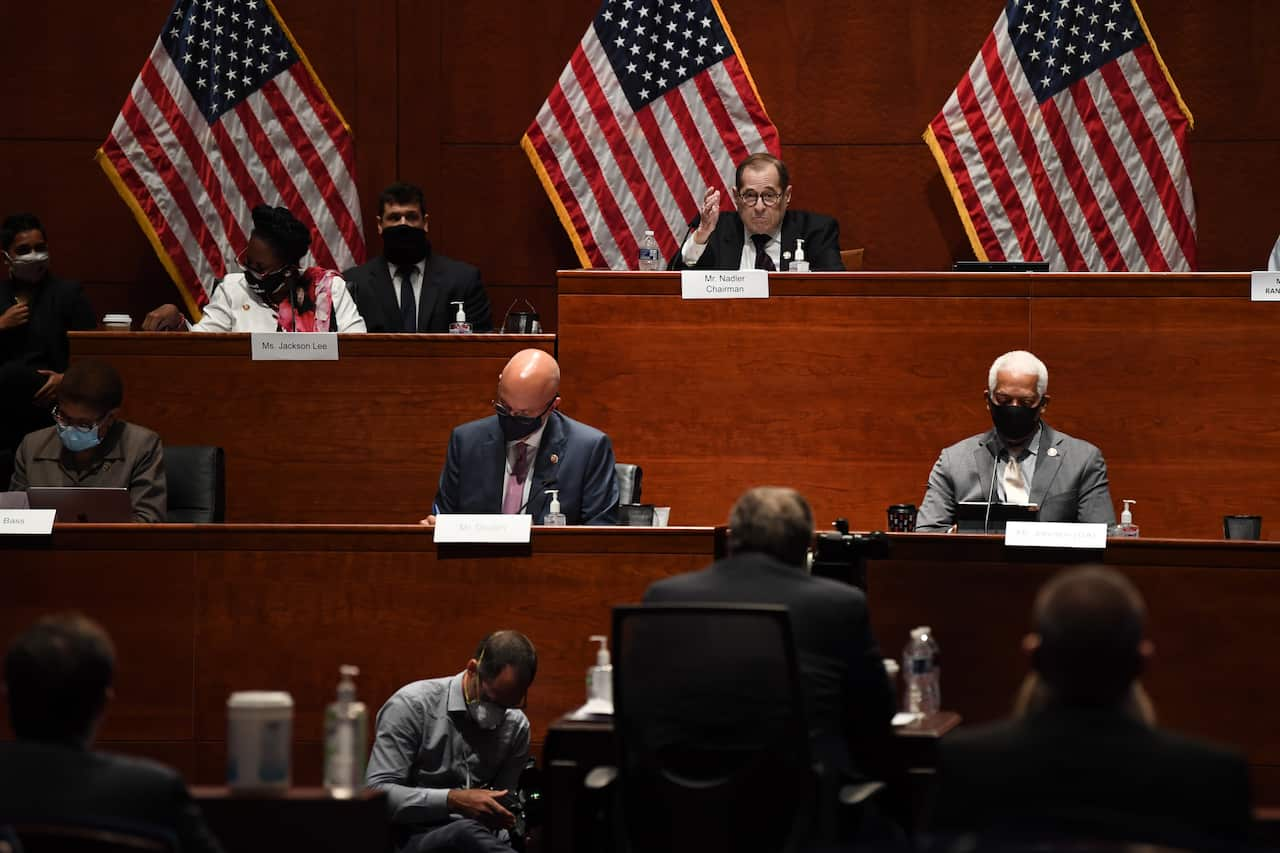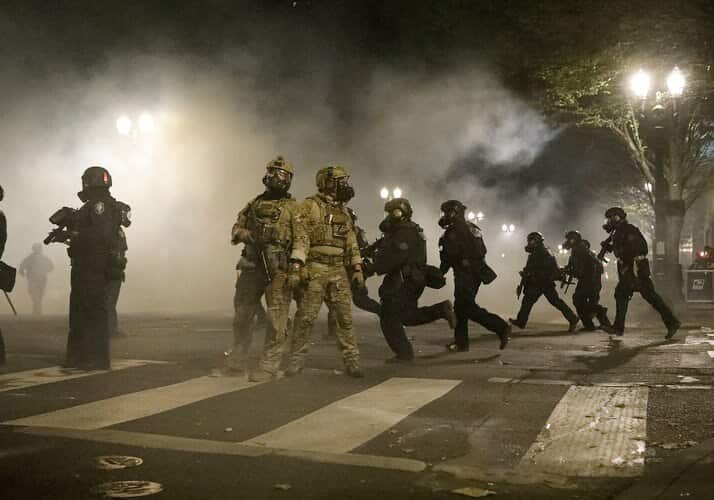US Attorney General Bill Barr has strongly defended sending federal law enforcement officers to quell protests in Portland and rejected allegations he was trying to boost President Donald Mr Trump's reelection prospects.
In a fiery hearing of the House Judiciary Committee, Mr Barr rejected Democrat allegations that the Trump administration was stifling peaceful protests against racism and police brutality, saying the demonstrations in the Oregon city were "an assault on the government of the United States."
He also rejected accusations that he had turned the Justice Department into a political tool for Mr Trump, saying instead that his mission was to "rectify the rule of law," even when that meant pursuing a lighter prison sentence for Mr Trump political consultant Roger Stone. "In the wake of George Floyd's death, violent rioters and anarchists have hijacked legitimate protests to wreak senseless havoc and destruction on innocent victims," Mr Barr said in testimony to the House Judiciary Committee.
"In the wake of George Floyd's death, violent rioters and anarchists have hijacked legitimate protests to wreak senseless havoc and destruction on innocent victims," Mr Barr said in testimony to the House Judiciary Committee.

Rep. Jerrold Nadler (D-NY) questions Attorney General William Barr during the House Judiciary Committee on Capitol Hill in Washington, DC. Source: The Washington Post POOL
"To tacitly condone destruction and anarchy is to abandon the basic rule-of-law principles that should unite us even in a politically divisive time," he said.
But Democrat Jerry Nadler, the chairman of the committee, blasted the Justice and Homeland Security departments for deploying paramilitary squads to Portland, where they have clashed with demonstrators and arrested dozens.
"We are, as a nation, witnessing the federal government turn violently on its own people," Mr Nadler said.
"And although responsibility for the government's failure to protect the health, safety, and constitutional rights of the American people belongs squarely to President Mr Trump, he could not have done this alone.
"He needed help," Mr Nadler said, pointing to Mr Barr. The Trump administration sent armed law enforcement officers, many wearing combat-like gear, to Portland this month to intervene after weeks of anti-police and anti-government protests left a federal courthouse and several other buildings marred with graffiti and broken windows.
The Trump administration sent armed law enforcement officers, many wearing combat-like gear, to Portland this month to intervene after weeks of anti-police and anti-government protests left a federal courthouse and several other buildings marred with graffiti and broken windows.

Federal agents pushing into the streets of Portland, Oregon. Source: The New York Times
Democrats said the intervention reeks of a "police state" and that it is a political move to show Mr Trump to voters as a strict law-and-order president.
But the protests in Portland have only intensified since federal officers arrived, and Portland and Oregon state officials have accused Mr Barr of an overreaction that made a manageable situation worse.
"The president wants footage for his campaign ads, and you appear to be serving it up to him as ordered," said Mr Nadler, one of several Democrats who peppered Mr Barr with questions about his 17-month record as attorney general.
But Mr Barr said in testimony that it is his job to protect property and livelihoods hurt by the demonstrators.
"There is no place in this country for armed mobs that seek to establish autonomous zones beyond government control, or tear down statues and monuments that law-abiding communities chose to erect, or to destroy the property and livelihoods of innocent business owners," he said.
"The most basic responsibility of government is to ensure the rule of law," he said.
"We are at the courthouse defending the courthouse. We are not out looking for trouble."
Mr Barr also dismissed accusations that he gave special favor to Mr Trump friend Roger Stone when he intervened to lighten the sentence of the veteran Republican activist on charges of lying to Congress and witness tampering.
Stone was sentenced to 40 months in prison in February, much less than the seven to nine years asked by Justice Department prosecutors in the case.
On 10 July, Mr Trump, who had criticised Stone's prosecution, commuted his sentence.
Mr Barr insisted that the original sentence request was excessive for Stone's case.
"I agree the president's friends don't deserve special breaks," he told the panel.
"But they also don't deserve to be treated more harshly than other people."
Share


